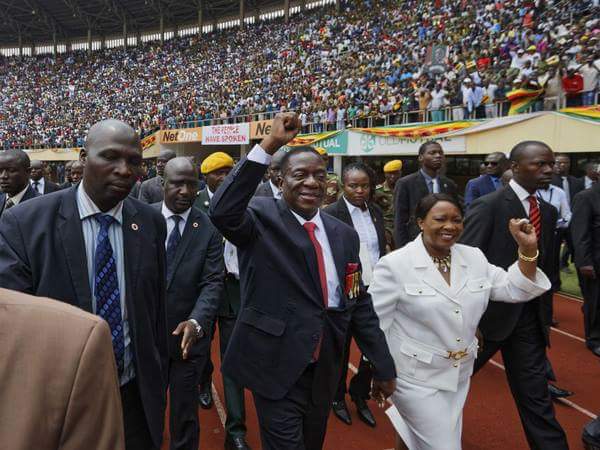By Farai Chirimumimba
The governing ZANU-PF party top officials will gather in Harare on 15 December for the extra-ordinary congress, a political meeting that is likely to see president Emmerson Mnangagwa further bolster his position in the party weeks after last months coup that rejuvenated his political fortunes and led to the resignation of long time ruler Mr Robert Mugabe.
The Politburo and central committee meetings held on 13 and 14 December set the tone ahead of the one day congress a departure from previous congress and conference where the event would take up to five days.
What is the party extra- ordinary congress?
On the face of it, the extra-ordinary congress is a high-profile summit of ZANU-PF party’s “great and good”. Usually a congress is held once every five years and an extra-ordinary congress is called for anytime when need arise by not less than 6 of the 10 provinces.The official task of the 8, 000 carefully screened delegates selected to attend this year’s event is to ponder and approve new policies and endorse Mnangagwa who will lead ZANU-PF for the next five years.
In reality, however, experts say this year’s extra- ordinary congress – the 1st since the party’s recalled former president Robert Mugabe last month– is all about one man: Emmerson Mnangagwa.
The most significant thing is that the congress simply to confirm Mnangagwa’s
preeminence – almost like a coronation as instructed by the Central Committe meeting held on 19 November that ousted Mugabe together with his wife Grace and a host of alleged G40 kingpins whose expulsions are also set to be endorsed.
Since taking power at the last such gathering, on 24 November , Mnangagwa would want to establish himself as ZANU-PF most dominant leaders after Mugabe; a 75-year-old strongman who party officials hail as their “crocodile” Mnangagwa is expected to use this congress, which marks the start of campaigning period for 2018 harmonised elections to further fortify his
position by stacking the party’s upper echelons with loyalists.
The position (s) of Vice-President and Second Secretary, National Chairman and Secretary for Administration and several Politburo and central committee vacancies are theoretically up for grab the after expulsion of alleged G40 canabals. These include Jonathan Moyo, Ignatius Chombo, Saviour Kasukuwere, Mandi Chimene and Kudzayi Chipanga.
With ZANU-PF on record saying the congress is not an elective event then Mnangagwa like Mugabe will most likely remain the one centre of power. This will give him power to exercise his discretion to choose or appoint loyalists. Of all the vacancies Zimbabweans are more interested on the appointment of the Vice-President (s) missing link on the current government.
The question then is what Mnangagwa will do with that power. Most expect a continuation
of his inauguration hardline domestic policies promotion and assertive international posture, which was lost during Mugabe’s 37 year rule which Mnangagwa was part of as cabinet minister and later Vice-President.
He is expected to set the tone for aggressively pushing for re-engagement of international financial support from IMF and World Bank. He is also expected to push for removal of sanctions.
Many people continue to hope that, having strengthened his political position, Mnangagwa might reveal himself as a political or economic reformer after the congress.
